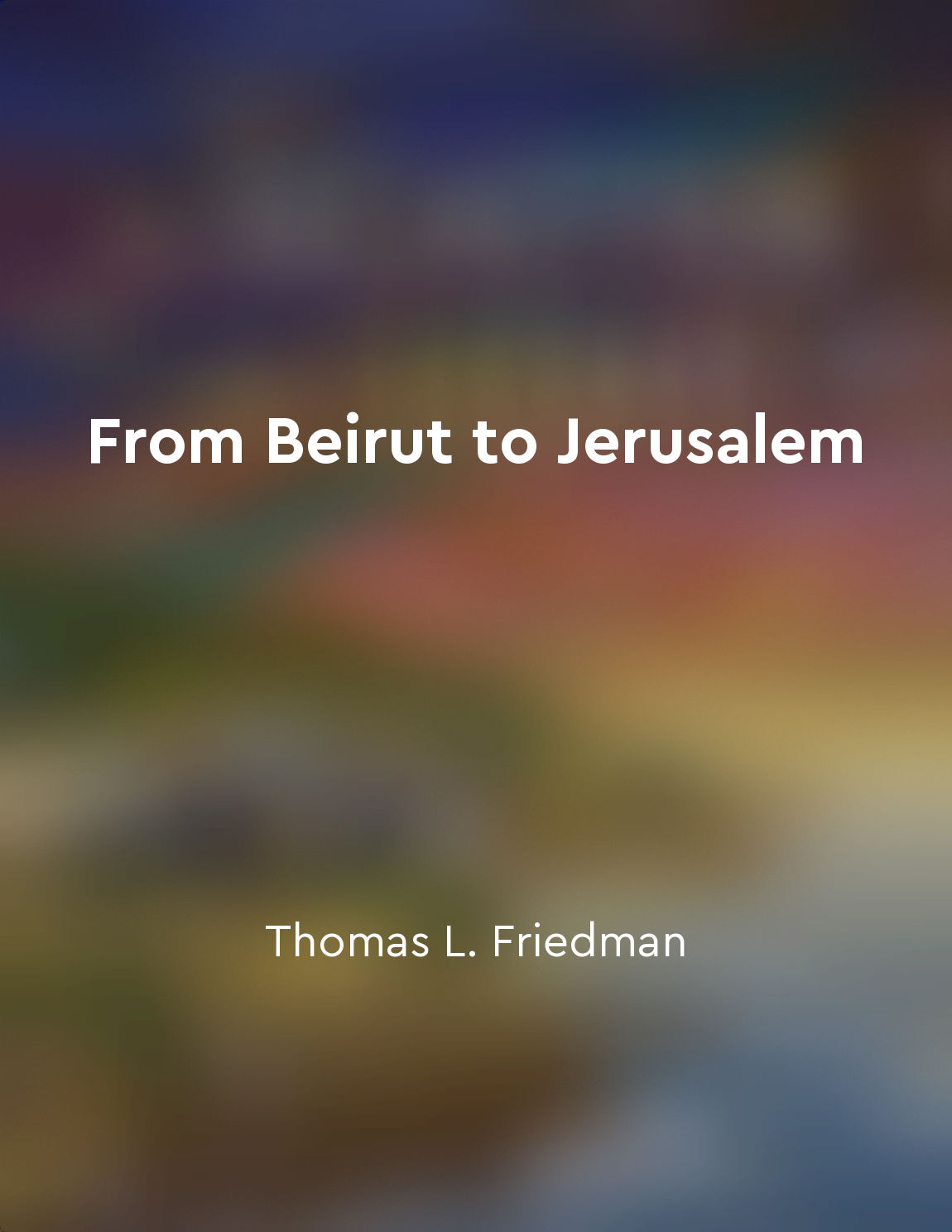The clash of civilizations narrative further perpetuates the myth of religious violence from "summary" of The Myth of Religious Violence by William T Cavanaugh
The idea that religious differences inevitably lead to violence is a powerful and pervasive myth in contemporary discourse. This myth is often perpetuated through the "clash of civilizations" narrative, which posits that the world is divided into discrete and inherently antagonistic cultural and religious blocs. According to this narrative, conflicts between civilizations are primarily driven by deep-seated religious differences and irreconcilable cultural values. However, this narrative overlooks the complex and multifaceted nature of religious identity and the ways in which it intersects with politics, economics, and social structures. It also ignores the fact that violence is not inherently religious but is often politically motivated and justified through religious language and symbols. By reducing conflict to a simple clash of civilizations, this narrative obscures the underlying political, economic, and social dynamics that drive violence and perpetuates the myth that religion is the root cause of conflict. Furthermore, the clash of civilizations narrative tends to essentialize and homogenize diverse religious traditions, ignoring the internal diversity and complexity within each tradition. This oversimplified view not only misrepresents the rich tapestry of religious beliefs and practices but also reinforces stereotypes and prejudices that can fuel further violence and division. In reality, religious traditions are dynamic and adaptive, capable of both promoting peace and inciting violence depending on how they are interpreted and mobilized in specific contexts. By reducing religious identity to a monolithic and static category, the clash of civilizations narrative oversimplifies the complex interplay of factors that contribute to violence and perpetuates the myth that religion is inherently violent.- The clash of civilizations narrative serves to justify and perpetuate existing power structures and hierarchies by framing conflicts in terms of religious and cultural differences rather than addressing the underlying political, economic, and social injustices that fuel violence. By challenging this simplistic and reductionist narrative, we can begin to move beyond the myth of religious violence and towards a more nuanced understanding of the complex dynamics that shape conflicts in our world today.
Similar Posts

The role of foreign powers in the region is a key theme
Thomas L. Friedman explores the significant impact of foreign powers in the region, emphasizing their pivotal role in shaping t...
Religious indoctrination is a form of child abuse
In his book, Richard Dawkins argues that religious indoctrination is a form of child abuse. He believes that children should no...
The Islamophobia that exists today is fueled by the myth of religious violence
The idea that religion is inherently violent is a pervasive myth that shapes our understanding of various faith traditions, inc...
The idea that religious differences lead to conflicts simplifies the root causes of violence
The notion that religious differences are the primary cause of violence is a simplistic and reductionist understanding of compl...
Interfaith dialogue and cooperation are essential in promoting understanding and harmony
The idea that interfaith dialogue and cooperation are crucial in fostering understanding and harmony is a foundational principl...
The spread of literacy has contributed to the decline of violence
The idea that the spread of literacy has helped to reduce violence may seem counterintuitive at first. After all, literacy is s...

